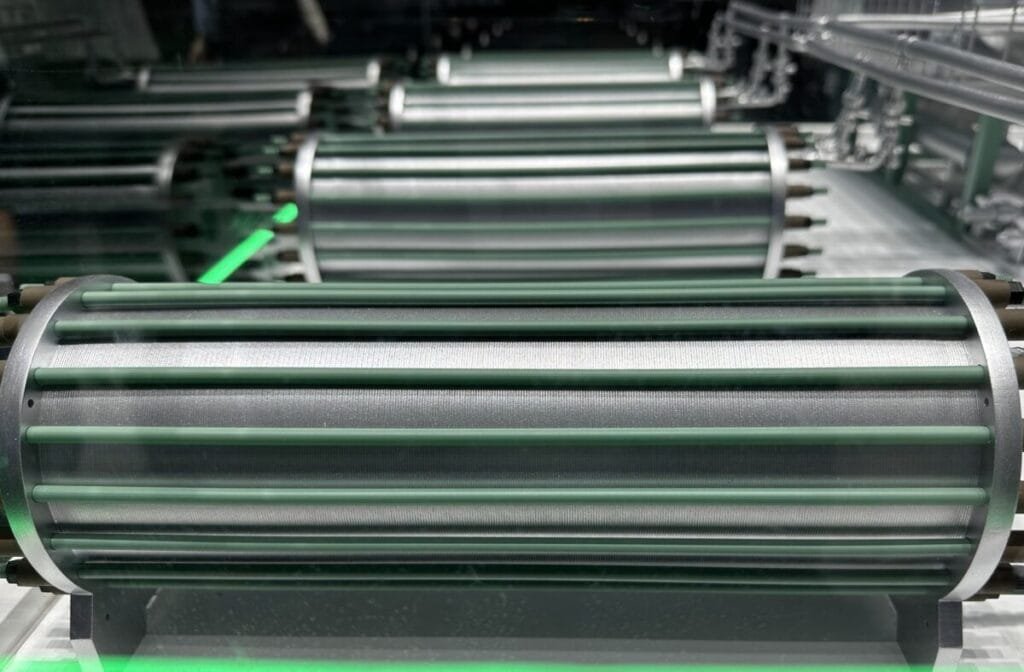Shining a Light on Hydrogen: Exploring Algeria and Mauritania’s Bold H2 Initiatives!

In an era defined by an urgent need for sustainable energy solutions, hydrogen has emerged as a promising hero in the battle against climate change. As global leaders push towards achieving carbon neutrality, Algeria and Mauritania have set the stage for a transformative journey in hydrogen production and utilization. In this post, we invite you to explore the pioneering efforts of these North African nations as they harness the power of hydrogen, sparking a ripple effect in the energy sector.
The Hydrogen Revolution: A Global Overview
Before delving into the specifics of Algeria and Mauritania’s hydrogen initiatives, it’s essential to understand the underlying significance of hydrogen within the global energy landscape. Hydrogen, often dubbed the clean fuel of the future, offers several unique advantages:
- Abundant resource: Hydrogen is the most abundant element in the universe, making it a virtually unlimited energy source.
- Clean energy: When used for power generation, hydrogen results in only water as a byproduct, drastically reducing carbon emissions.
- Versatile applications: From fuel cells in vehicles to powering industrial processes, hydrogen can be utilized across various sectors.
Despite these compelling advantages, many countries have been slow to adopt hydrogen technologies, primarily due to investment barriers and technical challenges. However, Algeria and Mauritania are breaking the mold, paving the way for a hydrogen revolution in Africa.
Algeria: Pioneering Hydrogen Production
Algeria’s ambition to become a leading hydrogen producer in Africa stems from its abundant natural gas resources and strategic location. The country is already a significant player in the natural gas market, providing an excellent foundation to develop a robust hydrogen economy. Here are some highlights of Algeria’s hydrogen strategy:
- Investment in renewable energy: Algeria is investing heavily in renewable energy projects, especially solar and wind, which are crucial for green hydrogen production. By harnessing its vast deserts, Algeria aims to generate affordable hydrogen sustainably and at scale.
- International partnerships: The Algerian government is actively seeking partnerships with foreign entities, tapping into expertise and investment to accelerate its hydrogen projects. Collaborations with European nations and companies are especially promising, given their hunger for clean energy imports.
- Policy and regulatory support: Government initiatives are being rolled out to create a favorable environment for hydrogen investment, including funding incentives, streamlined regulations, and dedicated research and development initiatives.
The combined focus on renewable energy and international cooperation positions Algeria as a potential leader in the hydrogen sector, making it a country to watch in the coming years.
Mauritania: Harnessing Potential for Hydrogen Development
Similar to Algeria, Mauritania is embracing hydrogen as a part of its economic diversification strategy. With an impressive array of renewable energy resources ranging from wind to solar, the country’s potential for hydrogen production is immense. Key elements of Mauritania’s hydrogen initiatives include:
- Renewable energy investment: The Mauritanian government is committed to ensuring a significant share of its energy comes from renewable sources. In recent years, several solar and wind projects have been launched, with the goal of establishing a diverse energy portfolio.
- Infrastructure development: Understanding the importance of infrastructure in hydrogen production and distribution, Mauritania is prioritizing the creation of necessary facilities and transport networks. The focus is on developing a hydrogen supply chain that can efficiently connect production sites with domestic and international markets.
- Sustainability goals: Mauritania is keenly aware of the global shift toward sustainability and aims to leverage hydrogen to reduce greenhouse gas emissions. As the country modernizes its industrial landscape, hydrogen will play a pivotal role in decarbonizing sectors such as metallurgy and transportation.
Both Algeria and Mauritania share a vision of a hydrogen-centric future, creating a synergy that could have significant socio-economic impacts in the region.
The Impact of Hydrogen Initiatives on Local Economies
The hydrogen drive in Algeria and Mauritania is not merely an environmental endeavor; it carries the potential for profound economic transformations as well. Some of the potential benefits include:
- Job creation: As both nations develop their hydrogen industries, thousands of jobs can be created in sectors such as manufacturing, research, and energy services.
- Energy independence: By investing in hydrogen production, these countries can reduce their dependency on fossil fuel imports, boosting their energy security.
- Foreign investment opportunities: With an attractive hydrogen market, Algeria and Mauritania can draw global investors looking for sustainable development projects, further stimulating economic growth.
- Technological advancements: As both countries invest in hydrogen technologies, research and development initiatives can lead to technological breakthroughs, not only benefiting their hydrogen industries but potentially impacting other sectors as well.
The Challenges Ahead
While the potential benefits of hydrogen initiatives are promising, numerous challenges must be tackled. These include:
- High production costs: Currently, producing hydrogen remains a costly endeavor, especially green hydrogen. Developing more efficient production methods will be crucial.
- Market dynamics: The hydrogen market is still nascent, and demand will need to be cultivated through policy incentives and national strategies to encourage consumption.
- Infrastructure bottlenecks: Developing the necessary infrastructure to support hydrogen production, distribution, and storage is key to unlocking its full potential.
Collaborative Efforts: The Way Forward
To overcome these challenges and maintain momentum, it is imperative for Algeria and Mauritania to engage in meaningful collaborations. The hydrogen landscape is rapidly evolving, and cooperation will ensure that both nations stay competitive on a global scale. Key avenues for collaboration include:
- Public-private partnerships: These partnerships can mobilize funds, share risks, and leverage expertise, accelerating the development of hydrogen projects.
- Regional collaboration: By working together within regional frameworks, Algeria and Mauritania can address shared challenges, create a stronger hydrogen market, and enhance their bargaining power in international negotiations.
- Knowledge sharing initiatives: Engaging in knowledge exchange programs with countries that have advanced hydrogen technologies will help enhance skills and accelerate the learning curve.
Conclusion: A Bright Hydrogen Future for Algeria and Mauritania
As we shine a light on the hydrogen initiatives taking root in Algeria and Mauritania, it becomes clear that the potential for these nations to become hydrogen powerhouses is both exciting and tangible. The convergence of renewable energy resources, government support, and international collaboration presents an unparalleled opportunity to not only enhance energy security but also promote sustainable economic growth.
The path may still be fraught with challenges, but with a united vision and an unwavering commitment to innovation, Algeria and Mauritania stand poised to chart a new course in the hydrogen saga, inspiring other nations to join the movement toward a clean, sustainable energy future.
For further insights into the ongoing developments in the world of hydrogen and energy technologies, explore more articles on BizTechLive.
Internal and External Links
- Internal Link: Hydrogen Energy: Unlocking the Future
- External Link: International Hydrogen Association
This captivating narrative not only captures the reader’s imagination but also offers a comprehensive overview of the significant hydrogen initiatives in Algeria and Mauritania, complete with actionable insights and future implications.






